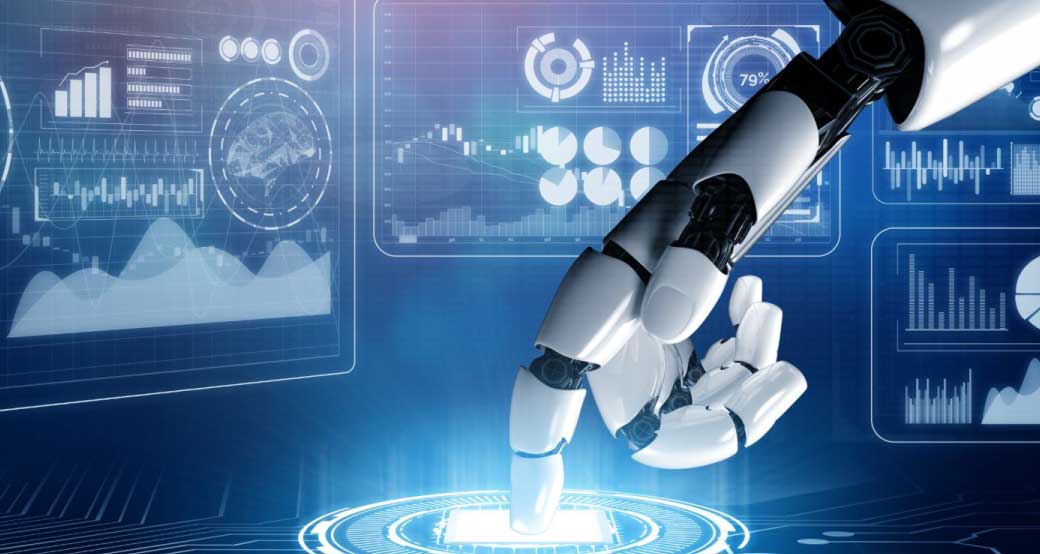The Engine of Modern Efficiency: Automation and Productivity
AI functions most effectively when it executes repetitive work that demands extended periods of time. The manufacturing industry uses AI robots to produce products with exactness and fast operation throughout 24 hours. The logistics algorithms function to establish the best delivery routes, which results in fuel savings and reduced delivery times. AI chatbots serve businesses by answering customer questions, which enables human staff members to handle more challenging tasks. The automation system exists to improve human performance rather than to eliminate human work activities. Since AI takes care of the mundane, humans can spend their time on the areas of creativity, strategy, and emotion. These are the areas wherein they really excel. Therefore, productivity gains translate to economic growth and innovation for all.
Data Analysis and Smarter Decisions: Unlocking Hidden Patterns
In the age of big data, data are meaningful but empty. However, AI, or better, the term ‘machine learning,’ a subset of artificial intelligence, has a capability that is so unique in sifting through the enormous data to help identify patterns, trends, and even correlations that would otherwise be humanly impossible to spot. This can best be explained with examples. AI is used by financial institutions to determine fraudulent transactions as and when they occur. In the marketing function, understanding consumer behaviour and predicting trends become accessible. Farming saw farmers make a move to analyze soil data with weather patterns to yield more crop produce. In this way, such raw data turns into real intelligence, enabling every sector to make smarter and, therefore, data-driven decisions.
A World Tailored to You: The Power of Personalization
Have you ever wondered how Netflix seems to know your taste in movies or how Amazon recommends the perfect product? AI technology reaches its peak through this system of personalised services. The systems analyse your previous actions and personal choices and the actions of people who resemble you to generate content that matches your unique preferences. The same rule applies to news feeds, music streaming services, and online educational platforms. Our digital services provide users with advanced personalisation features, which create customised experiences that boost user contentment and interaction levels.
These factors came together to reduce the time taken for AI to find its way into the work culture of various
Transforming Daily Existence: AI in Our Homes and Cities
AI technology enhances our nearby spaces by creating intelligent and adaptable systems. The AI system operates smart home devices, which include thermostats that monitor your daily routine and voice-activated lighting systems. AI operates as the control system that drives smart city operations at a broad level. The system operates to control traffic movement for congestion reduction, and it manages power grid efficiency and supports public safety operations through improved incident detection and response capabilities. The applications create three main benefits for urban life, which include sustainability, safety, and convenience.
AI's Impact on Healthcare: Transforming Patient Care
AI delivers its most significant effects through healthcare systems. Medical image analysis by AI algorithms matches or exceeds human radiologist performance, which enables fast and correct diagnosis of medical conditions. Scientists employ AI technology to speed up drug development through the evaluation of intricate biological information. AI-powered wearable devices deliver instant health monitoring for patients, which enables doctors and patients to detect severe health problems before they develop into emergencies. The technology has brought healthcare into a new era of proactive care which delivers individualised services at affordable prices.
Saving Our Planet: AI as a Tool for Environmental Protection
AI functions as a strong tool that helps combat climate change and environmental damage. The system enables scientists to create more exact climate change models, which results in superior planning and risk reduction techniques. AI systems use satellite images to detect deforestation while also monitoring wildlife numbers and determining optimal locations for wind and solar energy installations. AI studies complex environmental information to generate vital knowledge, which helps protect Earth for the benefit of upcoming generations.
AI for All: Fostering a More Accessible World
AI technology: People with mobility issues operate their devices through voice-activated assistants as an alternative control method. AI technology enables real-time captioning and translation services which help deaf and hard-of-hearing people while eliminating language obstacles. Applications that help people with visual impairments identify money and understand their surroundings create life-changing benefits for the visually impaired community. AI creates an inclusive environment by distributing access to everyone through its technological capabilities.
AI in Science and Research: Advancing the Next Wave of Innovation
AI generates scientific discoveries at an unprecedented rate which exceeds all previous historical benchmarks. The technology operates as a mapping tool which enables brain exploration and material discovery and protein structure prediction to advance biological and medical research.
The Ethical Imperative: Building a Responsible AI Future
Every person must grasp that AI systems deliver substantial power, which requires proper handling. The system maintains its value because it creates multiple moral problems. The investigation requires proper examination of three main problems, which include algorithmic bias, data privacy, and job displacement. The development of AI systems with clear transparency methods, fair treatment, and human control stands as a fundamental need. The solution to these problems stands as a fundamental requirement that will create advantages for every individual across the world.
The Future is a Collaboration: Why Humans and AI are Stronger Together
Since AI will enhance human capabilities rather than replace human functions, it is the most important technology. Researchers will use the information collected by artificial intelligence to prove newer theories, along with how surgeons will also operate by the instructions of artificial intelligence during surgeries. Also, teachers working with artificial intelligence on their personalised teaching resources will continue mentoring and thus build up a collaborative future.
Conclusion
AI has transformed from a specialized fad to a vital, transformative force. The ability of this technology to improve human capabilities is its fundamental value. AI delivers solutions to vital problems in health, climate, and other areas through its ability to operate efficiently and analyze data for personalised answers. The power of AI demands users manage its risks in order to access its full capabilities. The study of AI has become essential because human-machine partnerships will define future work success.




